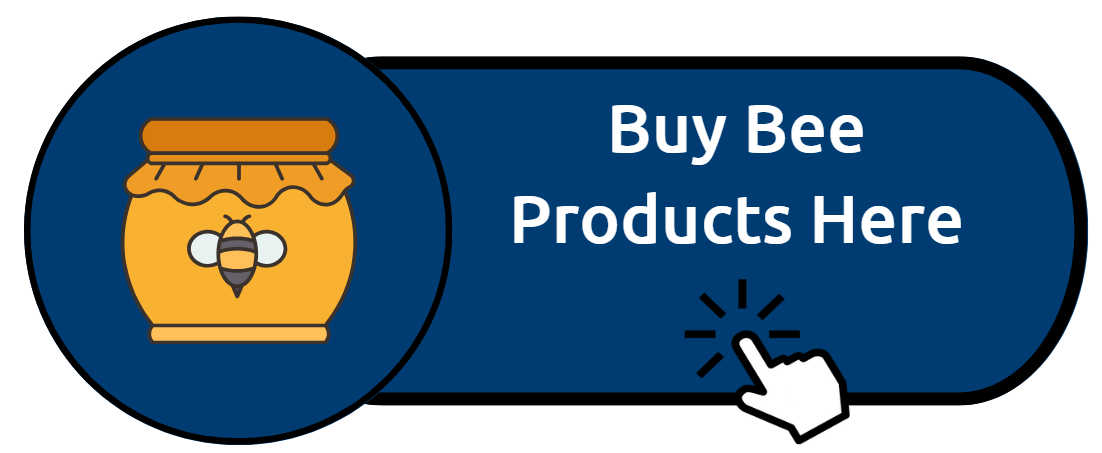The Pollinator Project
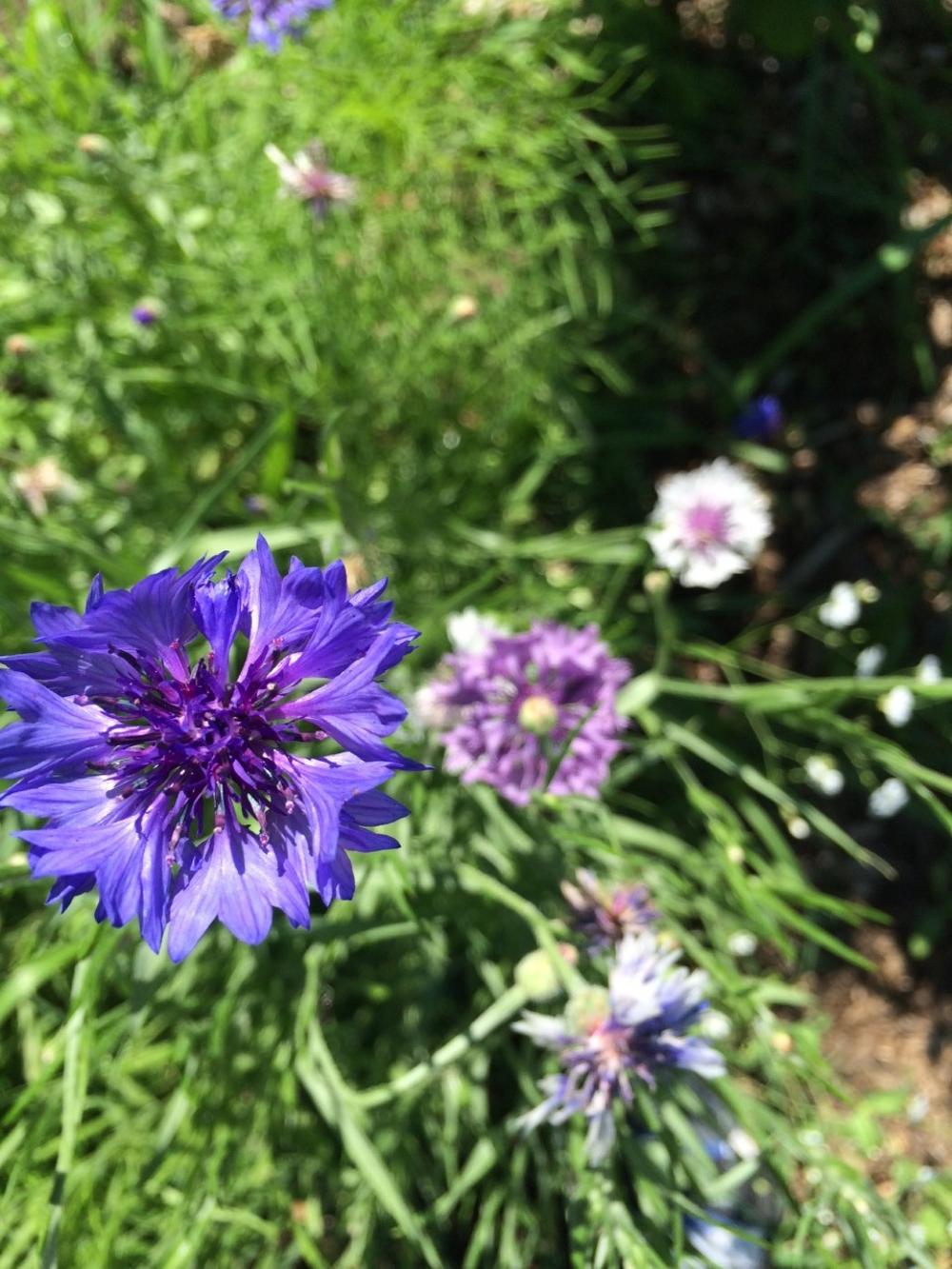
The Pollinator Project supports pollinators and educates the community. Launched in 2016, it has established over 9.5 hectares of gardens and planted 21,000 trees. In 2022, the project expanded its gardens, added more trees and upgraded the apiary.
The campus features green roofs, bioswales and bat boxes, contributing to a diverse ecosystem. Community members are invited to participate in apiary tours, planting events and workshops. Support the project by purchasing honey or candles.
-
Pollinator facts
- In addition to bees, pollinators such as butterflies, ants, beetles, moths, hummingbirds, bats and even the wind play vital roles in pollination.
- Different-coloured flowers attract different pollinators: bees prefer blue and purple-coloured flowers, hummingbirds like red and pink, and butterflies are drawn to bright yellows.
- A flower's fragrance attracts night pollinators such as bats and moths.
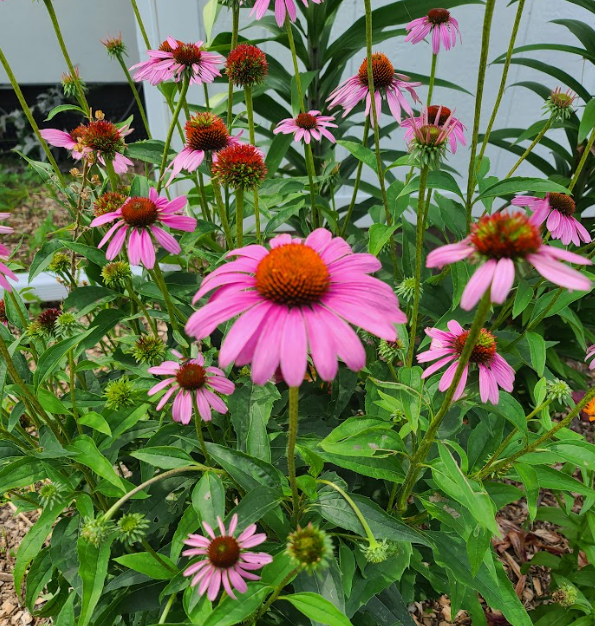
Garden development
Since starting our wildflower garden in 2016, we have received plant donations from various garden centres such as McKenzie Seeds, Rekker's Garden Centre, Vandermeer Nursery and Veseys.
We have been awarded funding from TD Friends of the Environment Foundation Grant, allowing us to expand wildflower gardens and plant more than 300 native and fruit trees.
Focus on native species
We prioritize native plant species, such as black-eyed Susan, echinacea, and milkweed, essential for biodiversity and pollinator health.
Seed exchange program
Check out the Ontario Tech Library’s Seed Exchange Program to grow a pollinator-friendly garden.
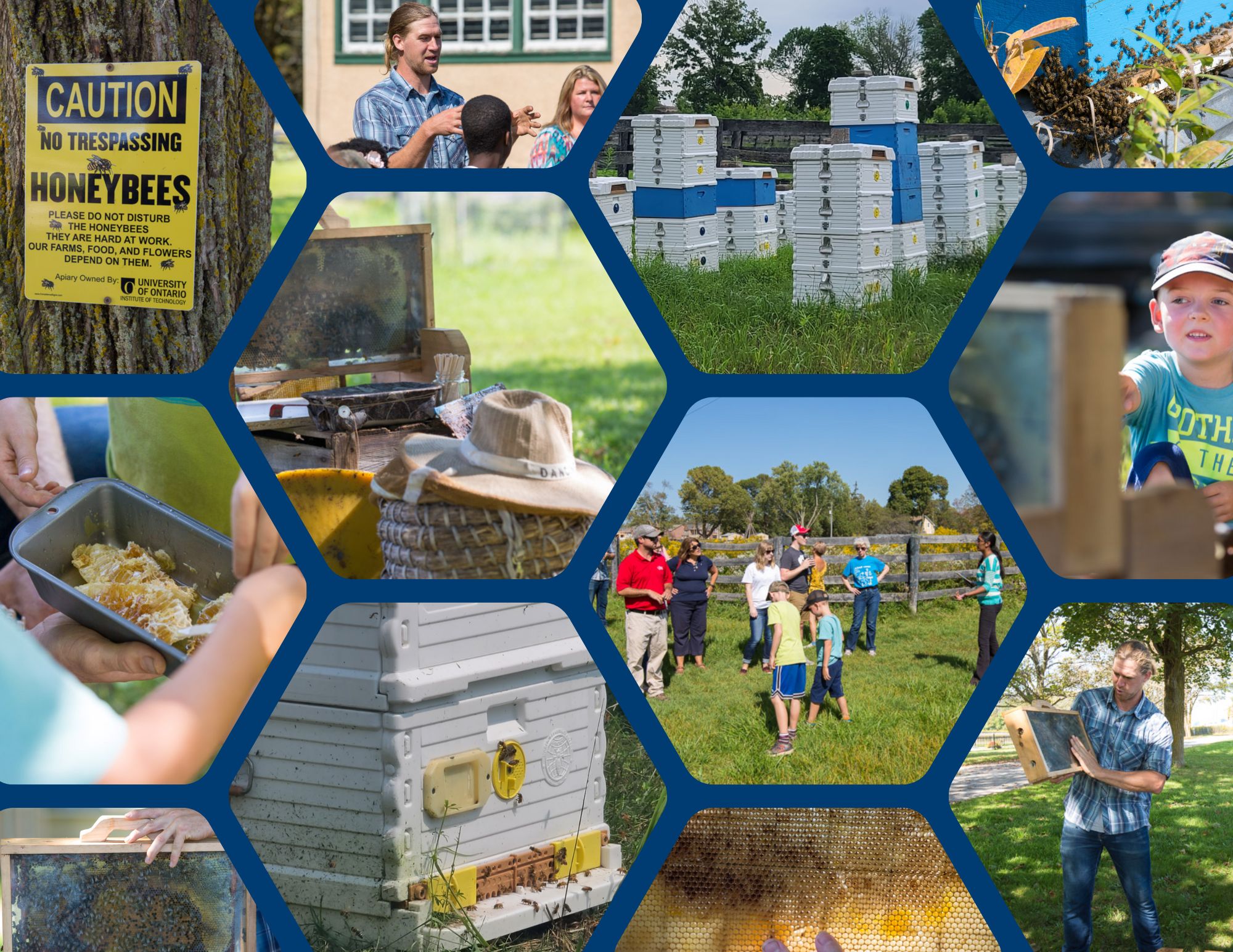 The university’s bee boxes were established to house colonies found in the walls of barns on Windfields Farm. In Spring 2016, approximately 200,000 bees were re-homed.
The university’s bee boxes were established to house colonies found in the walls of barns on Windfields Farm. In Spring 2016, approximately 200,000 bees were re-homed.
Today, there are 52 hives at Windfields Farm, including three saved from the barns. These hives support large populations of honey bees, which provide bee products, including honey and candles, available for purchase.
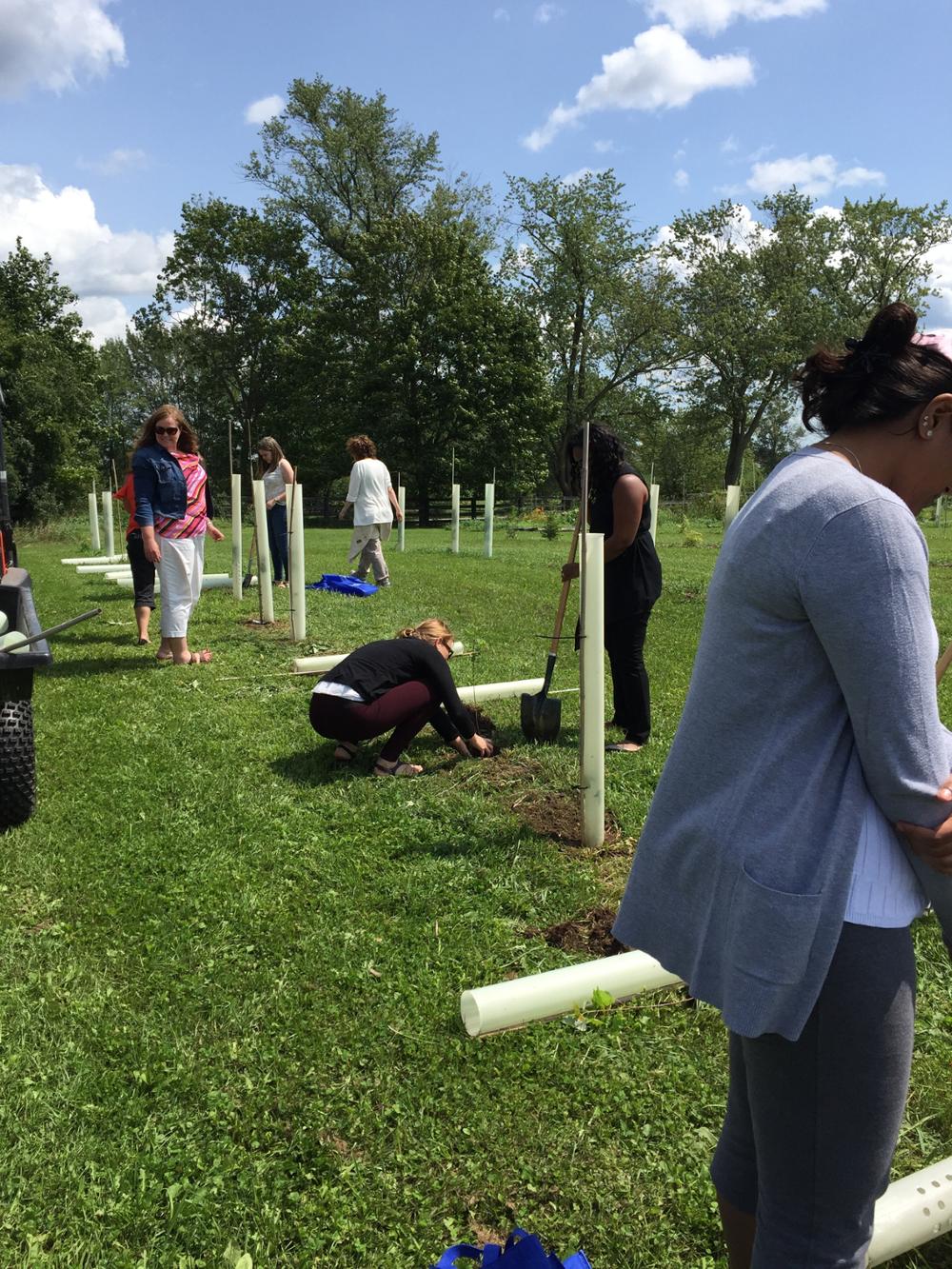
In partnership with Forests Ontario's 50 Million Tree Program and Ethic Trees, we planted:
- 2020: 4,410 seedlings.
- 2019: 7,520 seedlings (including 5,520 Tamarack and 2,000 Eastern White Pine).
- 2018: 8,360 seedlings (including 1,810 Eastern White Cedar and 4,985 Tamarack).
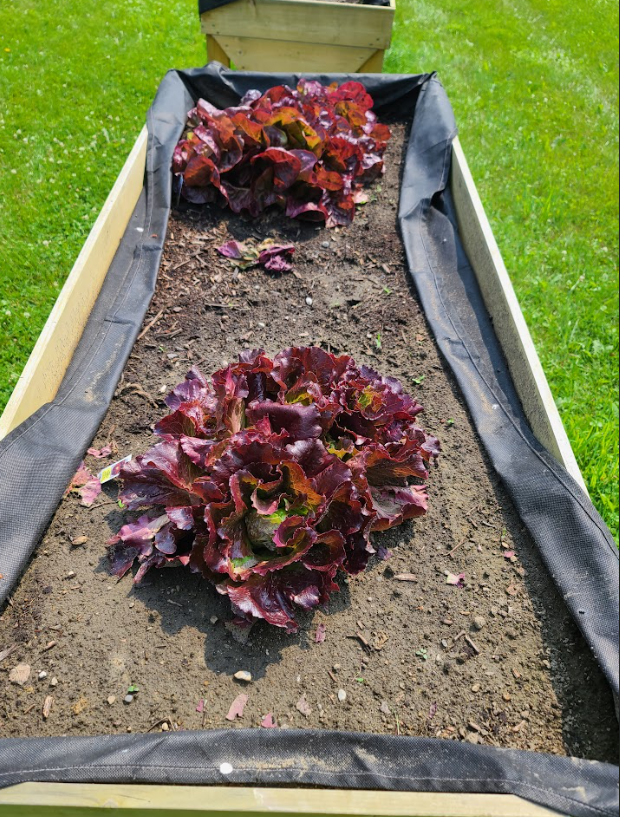 In the summer of 2018, the university launched its vegetable garden at Windfields Farm, expanding each year. We now grow a variety of vegetables, including peppers, cilantro, basil, lettuce, carrots, and celery. These vegetables are sold to food services on campus and the 2200 North restaurant. Any surplus is donated to Feed the Need Durham.
In the summer of 2018, the university launched its vegetable garden at Windfields Farm, expanding each year. We now grow a variety of vegetables, including peppers, cilantro, basil, lettuce, carrots, and celery. These vegetables are sold to food services on campus and the 2200 North restaurant. Any surplus is donated to Feed the Need Durham.
Ontario Tech designated a 'Bee City Campus'
In recognition of our pollinator efforts, we were designated a 'Bee City Campus' by Bee City Canada in June 2019. Read our application and the announcement on the university's news website. You can also explore two Student Speak articles:
- Ontario Tech University is a Bee City Campus, by Kari Clarkson.
- Three benefits of Ontario Tech's honey, by Safa Nazir.
Pollinator team
- Isabel Savransky, Asset and Sustainability Planner
- Ken Bright, Director, OCIS
- Lia Van Wees, Garden and Grounds Supervisor
- Alin Dumitrescu, Beekeeper
- Andrea Kirkwood, Professor, Faculty of Science
- Peter Stoett, Dean, Faculty of Social Science and Humanities
- Angelo Thanthrimudali, Sustainability Student
- Branice Yeung, Sustainability Student
- Iva Hossain, Sustainability Student
Support the Pollinator Project
Purchase the university's local honey. Visit the link below for more information.
